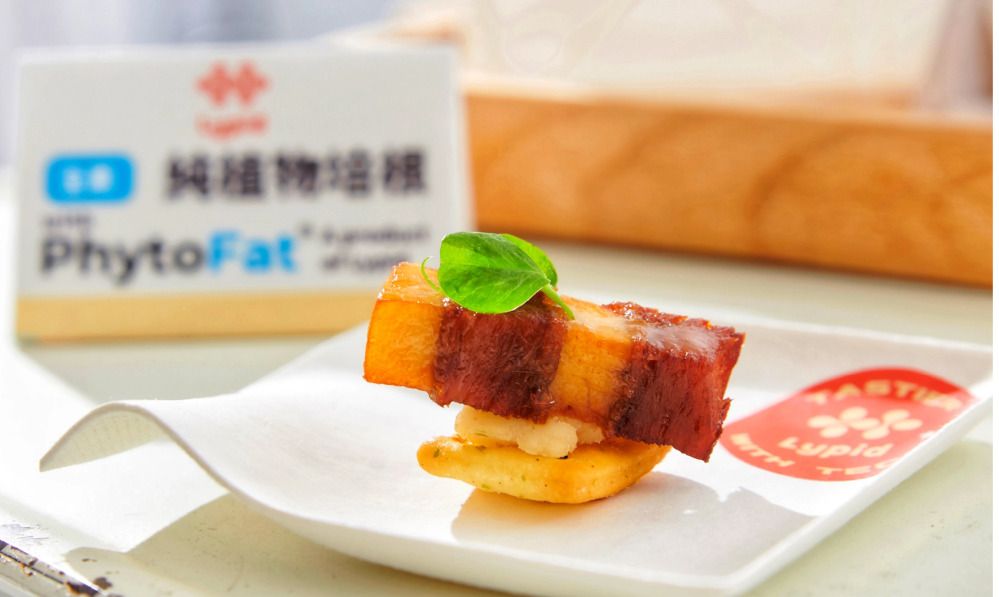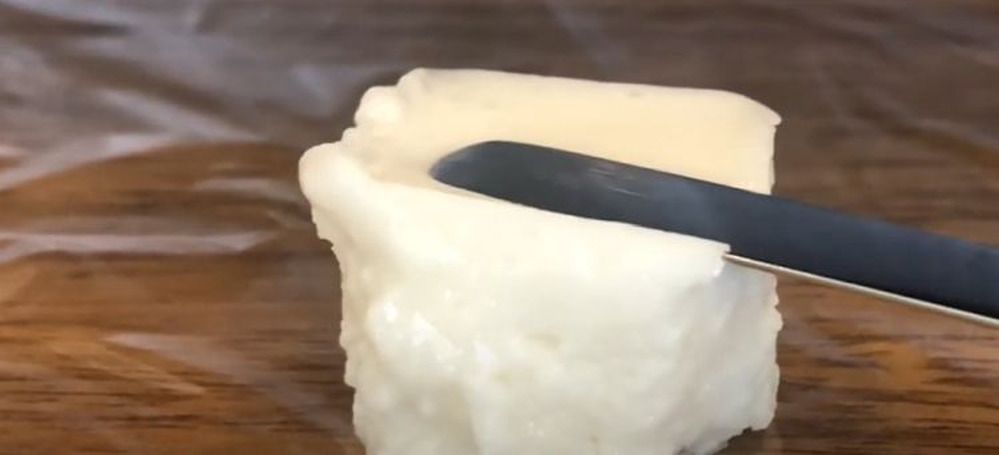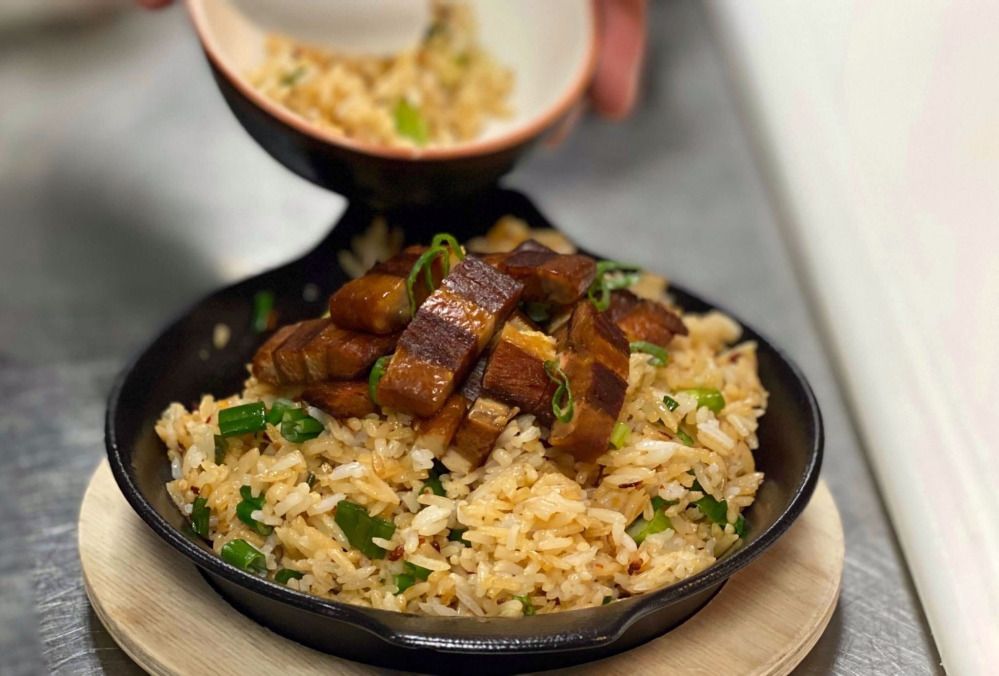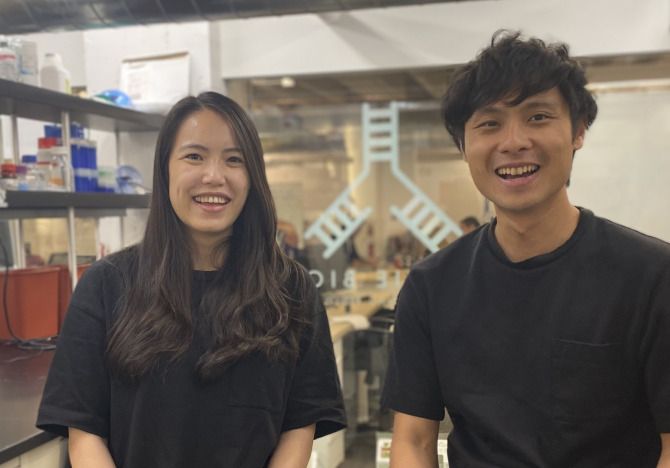From ‘designer fats’ made by microbes to plant-based oleogels that “look and behave like animal fat,” the race is on to create the next generation of fats for meat alternatives.
Right now, the go-to fat for plant-based meat formulators tends to be coconut oil, which is high in saturated fat, doesn’t taste like animal fat, and melts when the meat starts cooking, leaking out of the food matrix.
Multiple alternatives are currently under development, from fats made via microbial fermentation (Aio, Circe, Yali Bio, Zero Acre Farms, c16 Biosciences, Nourish); to cell-cultured fat (Mission Barns, Believer Meats); to oleogels enabling low saturated fat liquid oils to behave more like high saturated fat solid fats (Motif FoodWorks, Shiru).
California-based startup Lypid, however, is taking a different approach by microencapsulating plant oils such as sunflower and olive oil in water to create ‘PhytoFat,’ an emulsion (oil droplets surrounded by water) that “looks and cooks like intramuscular fat tissue.”
As Lypid is using liquid plant-based oils—which are primarily composed of monounsaturated fat—companies using PhytoFat can reduce saturated fat levels as well as improve juiciness and bite, and still retain a clean label, claims the company, which says the ingredients used to create the emulsions are all Generally Recognized as Safe (GRAS) in the US.
AFN caught up with the cofounders—CEO Dr. Jen-Yu Huang (JYH) and CTO Dr. Michelle Lee (ML)—who met while grad students at Cornell University and formed Lypid in 2020—to chew the proverbial fat…
AFN: What problem is Lypid trying to solve in meat alternatives?
ML: Vegan fats, even harder ones like coconut oil, still have a low melting point, so the appearance after cooking isn’t right and the texture isn’t right as the oil leaks out. They’re also high in saturated fat.
PhytoFat is a structured fat that’s low in saturated fat with a very high melting point that maintains its properties when heated, keeping more fat in the plant-based meat as it cooks.
AFN: But what about flavor? Even if you can make plant oils behave like animal fat, can you make them taste like it?
ML: Fat is an important flavor carrier, and our microencapsulation technology enables the incorporation of flavors into the plant fats and can extend the delivery of flavors and retain them even through the cooking process.
Right now we’re providing our fat in neutral flavors, but we also have the ability to add layers of flavor into our fats. A lot of flavors are volatile at high temperatures, so with our microencapsulation technology, we can protect these flavors from degrading or evaporating during the cooking process.
AFN: How versatile is PhytoFat? Are there different versions for different alt meat applications?
ML: We have three different versions with low, medium, and high melting points for different applications. For example, in some cases people don’t want to see visible fat, so you want a lower melting point, whereas some people want a marbling effect where you want a higher melting point.
AFN: How label-friendly is PhytoFat? What ingredients are used to combine the oil and water?
ML: It’s all plant-based ingredients: liquid oils and proteins, gums, and fibers.

AFN: What’s your business model? Is Lypid a b2b ingredients supplier or a plant-based meat company?
JYH: Right now we are providing both solutions. We want to stay in b2b [as a provider of PhytoFat to manufacturers and restaurants selling meat alternatives]. But we’ve also started selling finished products such as pork belly, because a lot of people were asking us how to incorporate the fat into whole cut products.
It’s easy to incorporate into burgers and processed products as it crumbles, and you can just blend it together [with plant-based proteins]. But for whole cuts like bacon or pork belly, it’s a bit more challenging to attach the fat to the protein, so you have to figure out how to bind them.
AFN: Is PhytoFat on the market yet, and who is using it?
JYH: PhytoFat is in more than 500 outlets in Asia. Louisa Coffee, the largest coffeehouse company in Taiwan, uses PhytoFat in co-branded plant-based burger patties; Curious Table, a vegetarian fine dining restaurant in Taiwan, uses PhytoFat in a plant-based pork belly; Sun Berno utilizes PhytoFat in its smoky beef burgers in Shanghai and Taiwan; and Space Bao uses PhytoFat to create its pepper bao in Taipei . We also have some partnerships with big food companies in APAC.
AFN: What’s your manufacturing setup?
JYH: We have tens of tons of production capacity per year in Asia at our own facility in Taiwan.
AFN: How cost effective is Lypid’s approach vs other startups making ‘designer fat’ using techniques such as precision fermentation?
JYH: We’re using ingredients that are already GRAS, so we don’t have to go through a lengthy or expensive regulatory process, plus we’ve also shown that our technology is scalable and affordable, and people are using it. We also think we can bring down costs by 70-80% with further scale to get closer to competing with coconut oil.

AFN: What IP does Lypid have?
ML: We have multiple patents pending, which cover how to process PhytoFat and how to use it in plant-based applications. We’re also planning to file more.
AFN: What kind of reception have you had in the marketplace?
JYH: We’ve had very positive feedback because it’s so versatile. The high melting point means the fat stays in the product while it’s cooking, so you get the mouthfeel, the chew and the juiciness, but also the crispiness when you chew the fatty parts. If you put it in a pan on its own, it sizzles like pork back fat, and you can get some browning on the surface.
For the finished products, the pork belly, we’ve had interest from food manufacturers and foodservice companies, whereas for the PhytoFat, we’re talking to food processers who want to see how it can improve their current products or help them create new products.
AFN: How big is the team at Lypid now?
JYH: We have close to 20 people now. We have people in the US and in Taiwan, where we have our production facility. However, one of our goals for this year or early next year is to set up a pilot production facility in the US.






